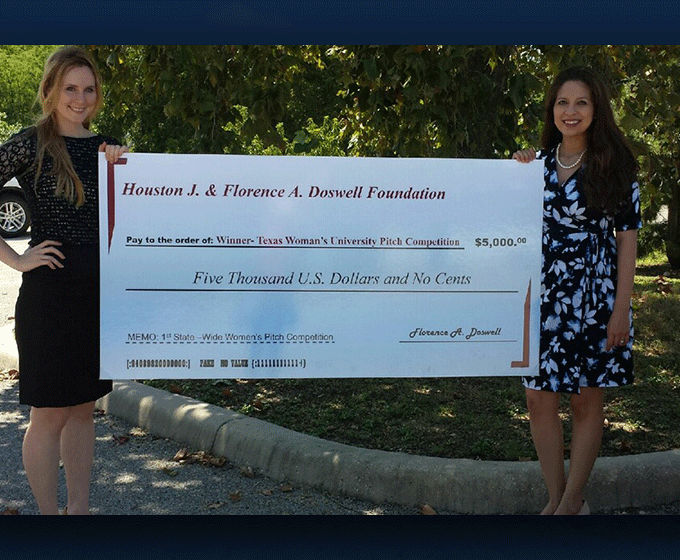
Bianca Cerqueira ’17 and Lauren Cornell '12 '19 created NovoThelium while students at UTSA.
OCTOBER 2, 2024 — Eleven years ago, Bianca Cerqueira ’17 and Lauren Cornell ’12 ’19 shared a conversation that would lead to the creation of NovoThelium, a startup empowering breast cancer survivors.
The UTSA alumnae met as students in a Bioengineering and Biomedical Engineering Program jointly offered by UTSA and UT Health San Antonio.
Their idea, at the time, was fueled by a shared family history of breast cancer and their shared science backgrounds. They’d meet after class to begin developing a bioengineered human scaffold that allows mastectomy patients to regenerate nipples from their own cells.
Next year, Cerqueira and Cornell will celebrate NovoThelium’s 10th anniversary.
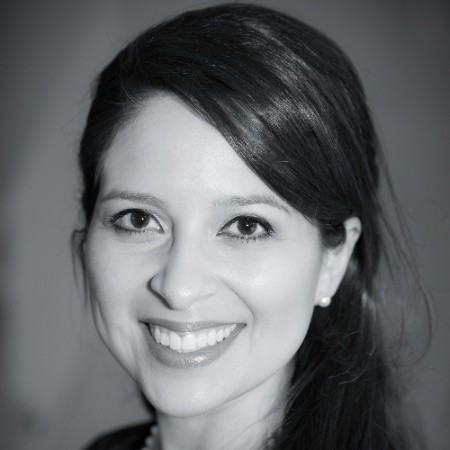 Bianca Cerqueira
Bianca Cerqueira It takes 17 years, on average, to translate a scientific discovery into market-ready application that improves health. Today, a new generation of scientists is leading research teams in laboratories and communities to speed up this noble endeavor.
Cerqueria and Cornell continued at UTSA with their respective doctoral studies in biomedical engineering and translational science.
The Ph.D. program in Translational Science is a joint effort between UTSA, UT Health San Antonio, University of Texas at Austin and UT Health Houston. The graduate program creates scientists who advance knowledge toward the goal of translating basic biomedical scientific discoveries into strategies that improve health care delivery, patient outcomes and community health.
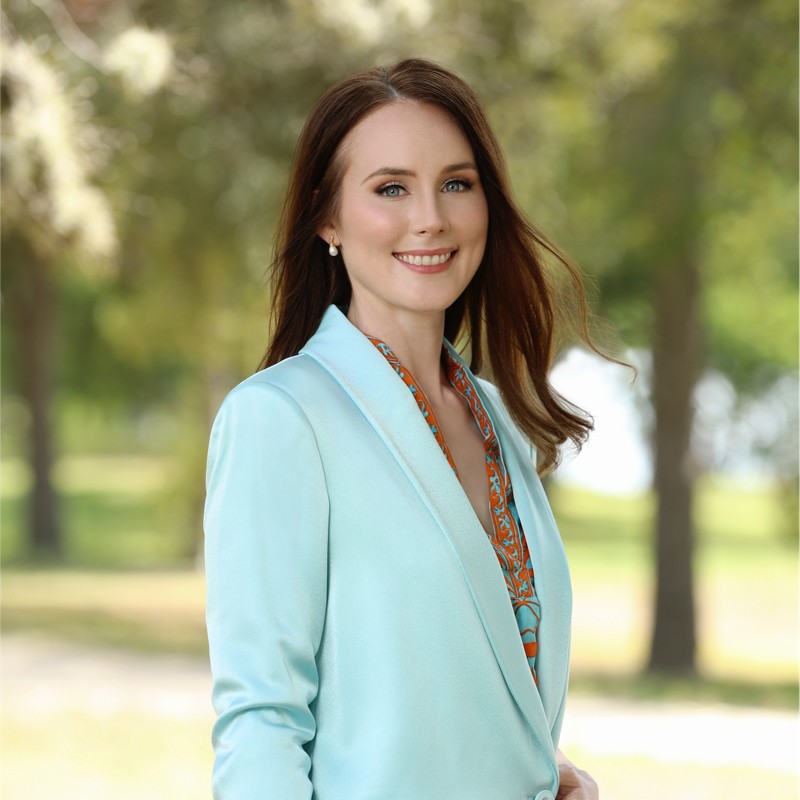 Lauren Cornell
Lauren Cornell“The Translational Science program is vital in shaping the future of healthcare. It prepares the next generation of scientists to lead multidisciplinary biomedical research teams. These scientists translate basic biomedical scientific discoveries into strategies that will improve healthcare delivery, patient outcomes, and community health. Ultimately, the goal of this degree is to equip students to improve people's lives,” said University College Dean Jianwei Niu.
While in the Translational Science program, Cornell signed up for a course on entrepreneurship and received an assignment to write a business plan.
“That’s actually where the first draft of our business plan was created. It was in Dr. Lynda De La Viña’s class,” Cornell said. “And it was actually her suggestion early on that we look into business plan competitions. Bianca and I were really young and didn’t have a lot of experience, but we had this professor.”
De la Viña, then UTSA’s Peter Flawn Professor of Entrepreneurship and Technology Management, mentored Cerqueira and Cornell in the development of their business plan. The alumnae rehearsed their pitch for NovoThelium until it was flawless.
Cerqueira recently returned to UTSA in Spring 2024 for to pursue an M.B.A. that would further their business knowledge. The endeavor is more than a business strategy. Cornell and Cerqueira see it as igniting an opportunity to improve people’s lives.
“Nipple reconstruction isn’t just aesthetic. It has a psychological impact. It has a health impact. It has an emotional impact. It’s health care,” Cornell said. “I’m proud that we’ve been able to be part of this conversation that’s been picking up over the past decade. It’s impactful and we’re definitely here to help people.”
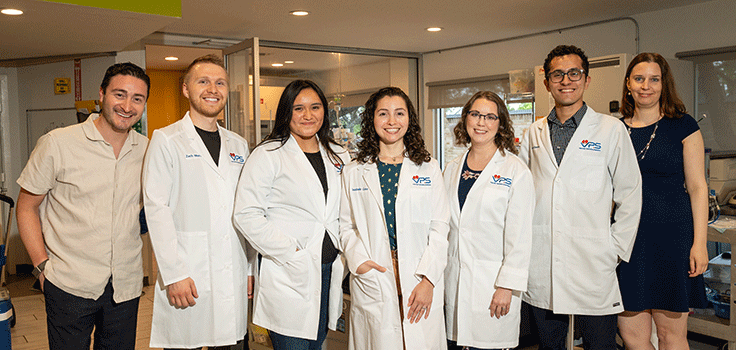
Rafael Veraza '18 (far left) and Kristina Andrijauskaite '20 (far right) are graduates of the joint Translational Science doctoral program. In the center (from left to right), Zachary Maxwell, Maria Basurto, Isabella Cano, Chelbee Farnen and Exal Cisneros are all UTSA alumni.
The same is true for UTSA and UT Health alumni at Vascular Perfusion Solutions (VPS), a San Antonio-based medical device startup company. VPS focuses on developing preservation technology to extend the viability and function of organs and tissues for longer duration than ice coolers, the current standard-of-care. The VP.S ENCORE® technology is an innovative, oxygenated, machine perfusion and transport system designed to preserve adult and pediatric hearts for prolonged time before transplantation.
Rafael Veraza ’18, CEO and president of VPS, completed the joint Translational Science doctoral program in 2018. Kristina Andrijauskaite ’20, VPS’ chief scientific and technology officer, is also an alum of the program.
“The program bridges the gap between scientific and technical knowledge, and real-world commercialization,” Veraza said. “It equips us with the essential tools to efficiently and effectively translate life science and medical technologies from the lab to clinical practice.”
The diverse range of courses offered by all four UT institutions enhanced their scientific background by equipping them with the tools necessary for navigating the complex world of healthcare innovation. They credit their business, cultural proficiency and communication courses with helping them excel in their roles at VPS.
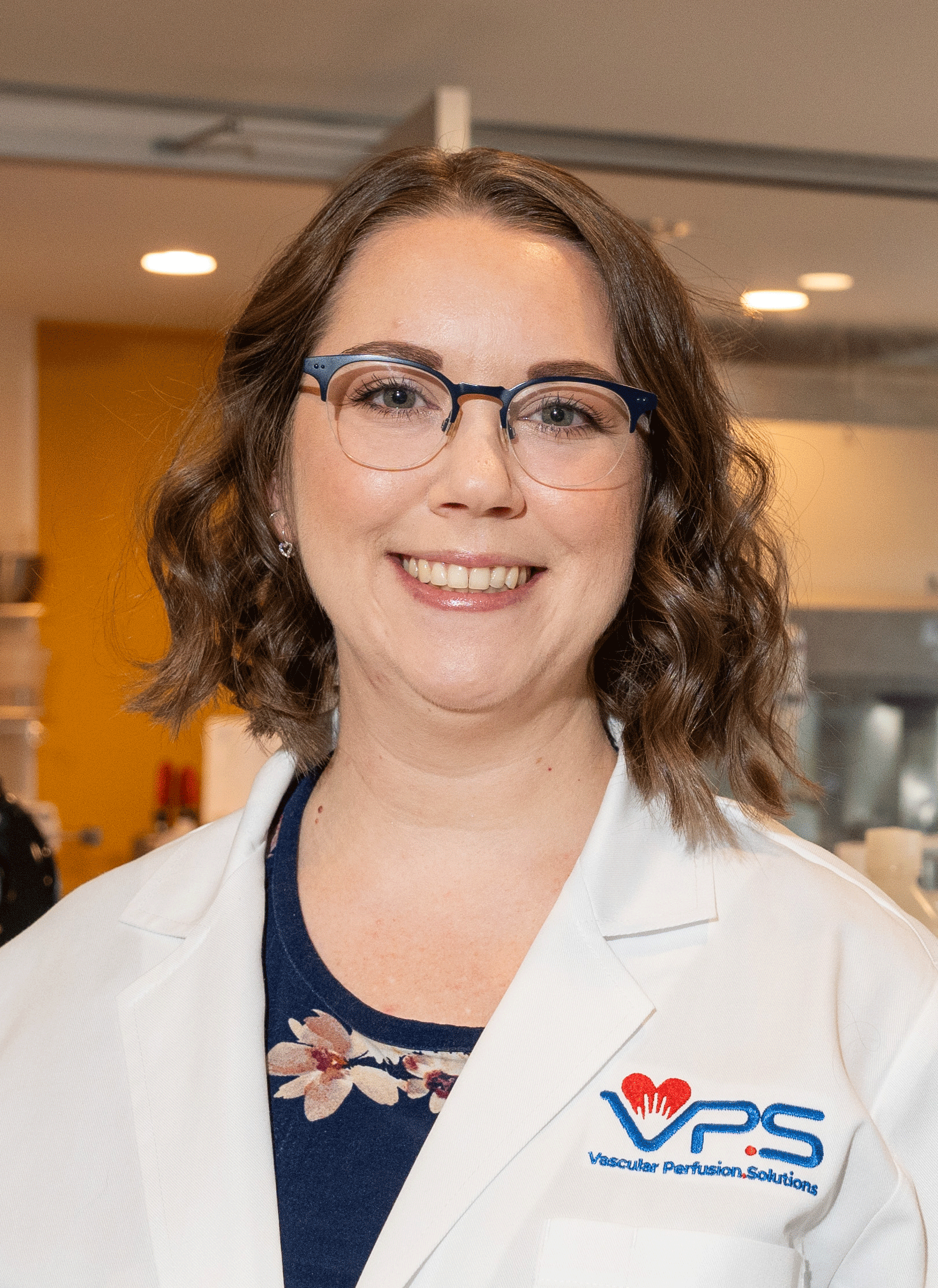 Chelbee Farnen
Chelbee FarnenChelbee Farnen ’24 recently joined the VPS team as a senior scientist. After earning her master’s degree in biotechnology from UTSA in 2024, she began as an intern. Farnen’s teamwork, initiative in taking on additional responsibilities and eagerness to learn on the job made a strong impression on VPS leadership.
“I was learning to do things on the business side and helping write grants,” she said.
The experience instilled the importance of integrating skills outside a traditional scientific training.
“Every single engineer here has a role contributing to the VPS medical device development. We’re not just engineer or research assistant number three or five. We do different things that go toward saving lives, either for a pediatric patient or an adult patient. Our work comes with a purpose,” Farnen said.
Farnen’s advice to students interested in following similar paths is to learn effective communication skills. She says that skillsets in communication and biotechnology apply to the medical device field and establish connectivity with investors and the public. Ultimately, she says, this helps transform concepts into reality — concepts which have the potential to transform lives.
“I think that’s a common theme of our employees. We’re working toward something bigger than us,” Veraza said.
UTSA Today is produced by University Communications and Marketing, the official news source of The University of Texas at San Antonio. Send your feedback to news@utsa.edu. Keep up-to-date on UTSA news by visiting UTSA Today. Connect with UTSA online at Facebook, Twitter, Youtube and Instagram.
Move In To COLFA is strongly recommended for new students in COLFA. It gives you the chance to learn about the Student Success Center, campus resources and meet new friends!
Academic Classroom: Lecture Hall (MH 2.01.10,) McKinney Humanities BldgWe invite you to join us for Birds Up! Downtown, an exciting welcome back event designed to connect students with the different departments at the Downtown Campus. Students will have the opportunity to learn about some of the departments on campus, gain access to different resources, and collect some giveaways!
Bill Miller PlazaCome and celebrate this year's homecoming at the Downtown Campus with food, games, giveaways, music, and more. We look forward to seeing your Roadrunner Spirit!
Bill Miller PlazaThe University of Texas at San Antonio is dedicated to the advancement of knowledge through research and discovery, teaching and learning, community engagement and public service. As an institution of access and excellence, UTSA embraces multicultural traditions and serves as a center for intellectual and creative resources as well as a catalyst for socioeconomic development and the commercialization of intellectual property - for Texas, the nation and the world.
To be a premier public research university, providing access to educational excellence and preparing citizen leaders for the global environment.
We encourage an environment of dialogue and discovery, where integrity, excellence, respect, collaboration and innovation are fostered.